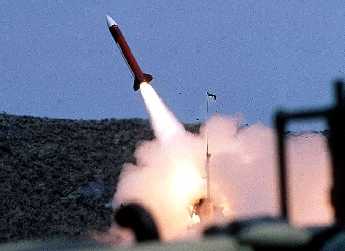
On February 25, 1991, during the Gulf War, an American Patriot missile
battery fired at an incoming Scud missile but failed to intercept it. The
Scud missile struck an American Army barracks and 28 soldiers were killed.
During the Gulf War, the U. S. Army had been claiming a successful intercept
rate by Patriot missiles of 80% in Saudi Arabia. This estimate was scaled
back to 70% shortly after the war. However, in a later congressional investigation,
testimony indicated that "the Patriot's intercept rate could be much lower
than ten percent, perhaps even zero."
So, what was the problem? It turns out that the computation of time
in a Patriot missile, which is critical in tracking a Scud, involves a
multiplication by a constant factor of 1/10. The number 1/10 is a number
that has no exact binary representation, so every multiplication by 1/10
necessarily causes some rounding error. In the case of the Patriot missile,
the accumulated rounding error was sufficient to cause it to mistrack incoming
Scuds and thus miss them, with deadly consequences—and all due to bad computer
arithmetic.


